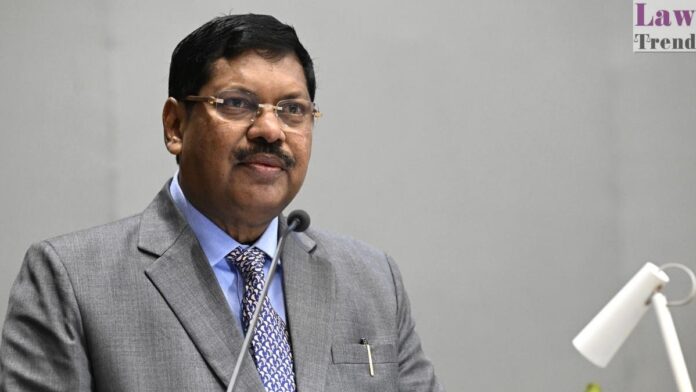Chief Justice of India B.R. Gavai on Wednesday flagged the massive pendency of disputes before the Income Tax Appellate Tribunal (ITAT), describing it as a “major problem,” even as he commended the tribunal for substantially reducing its backlog over the last five years.
Justice Gavai was speaking at a symposium titled “Income Tax Appellate Tribunal — Role, Challenges and Way Forward” and a felicitation ceremony held in New Delhi. The event was attended by Law Minister Arjun Ram Meghwal and ITAT President Justice C.V. Bhadang.
The Chief Justice pointed out that while the ITAT had managed to bring down the pendency of cases from 85,000 to 24,000 in five years, matters involving a staggering Rs 6.85 lakh crore are still awaiting adjudication.
“A major problem as is with the courts as well as the other tribunals is with regard to huge pendency. I am happy to note that in the last five years they have brought down the pendency from 85,000 to 24,000. I must congratulate all the members of the ITAT as well as the members of the Bar because without the cooperation of the Bar this could not have been possible. However, still the matters involving disputes that you know is of Rs 6.85 lakh crore which amounts to more than 2 per cent of India’s GDP still lie for consideration before the Tribunal,” he said.
Justice Gavai praised the Tribunal’s “significant contribution” to the justice delivery system but stressed the need for renewed focus on structural and procedural improvements to address contemporary challenges.
The Chief Justice emphasised that reforming the ITAT requires a holistic approach, touching every aspect of its functioning — from appointments to training and technology.
“The way forward, in my view, must be comprehensive. Reform should address the issues of appointments, tenure, training, case management and technology as interconnected components of an institutional ecosystem, rather than treating them as isolated policy measures,” he said.
Justice Gavai highlighted the importance of transparent appointment procedures to build public confidence in the Tribunal’s credibility.
“Appointment procedures at ITAT must remain transparent. The credibility of a tribunal fundamentally relies on public confidence that its members are selected according to objective standards rather than transient administrative convenience,” he observed.
Referring to his own judicial career, he added, “The law has kept the minimum entry at 50 for the ITAT member, I became the high court judge at the age of 42.”
Another key issue identified by the CJI was conflicting rulings by different benches, which, he cautioned, can undermine legal certainty and public trust.
“When courts and tribunals provide consistent, reasoned and predictable decisions, the law becomes a stable framework within which citizens can exercise their rights and duties confidently. Conversely, inconsistent or contradictory opinions can erode the authority of the legal system and hinder the effective administration of justice, especially in technical and highly specialized fields like the Income Tax,” he said.
To tackle this, he proposed mechanisms such as early identification of conflicting decisions through special benches and internal references.
He also called for systematic induction and continuing education programmes to enhance adjudicatory skills and reduce inconsistencies, along with stable secretariat support, adequate registry staff, and greater control over infrastructure to prevent disruptions in judicial work.
Justice Gavai acknowledged that the ITAT plays a crucial role at the intersection of law and finance.
“The ITAT continues to navigate the intricate interplay between law and finance while delivering timely and informed decisions. We must examine the ITAT with gratitude for its achievements and with a critical willingness to address its structural challenges,” he said.




